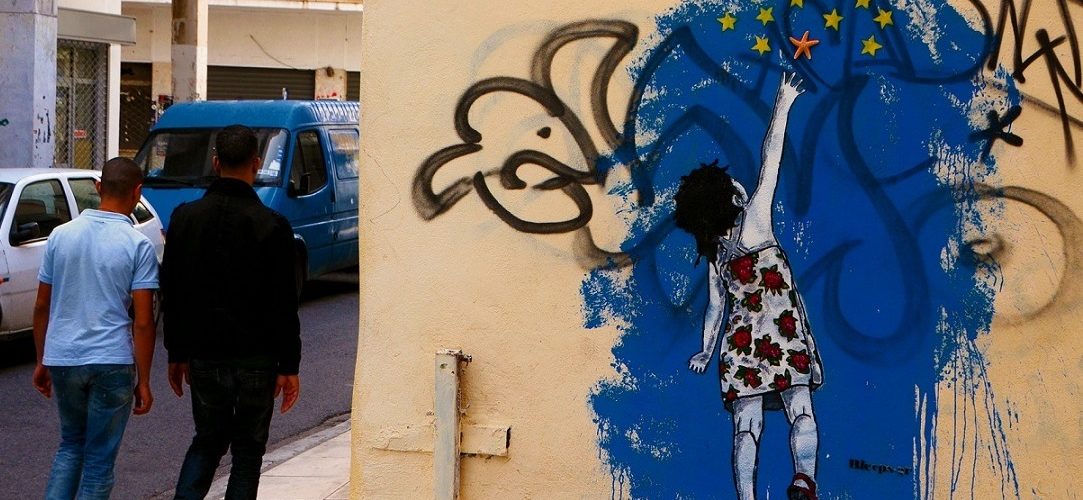
‘The Stars and the Starfish’ by Bleeps. Athens, Greece.
“We have to learn to judge a society on the noise, art and entertainment it makes rather than its statistics.” Jacques Attali
Discussion on the future EU budget has started. The negotiations are decisive for the next programming period (2020-2025) and the implementation of priority policies to advance the European project. Will these discussions reflect on Brexit and the push for nationalism in a growing number of EU Member States? Will the EU budget address the relationship of European citizens and improve mutual understanding? What is the meaning that will be given to EU actions? Growth and competitiveness? Or will it boil down to greediness and selfishness? What is going to be considered to strengthen solidarity amongst European citizens and to unite them around common values to advance democratic principles? The machine needs an overhaul. The EU institutional ecosystem requires profound design thinking to make it relevant again to its constituents and the aim of the Union.
Europe has yet to become a Union. Quality of life – which is a strong characteristic of Europe – should be given equal weighting in policy consideration to economic and trade targets. Measurement and impact assessment tools should be revisited to fit with societal goals. Europe remains a unique example in its capacity to promote diversity and manage cultural differences. At a time of cultural conflicts Europe’s experience has never been so important.
The challenge is to reconnect our European elite to the side of the brain that counterbalances rational and positive thinking with sentiment, passion, values and feelings – the human side. I am advocating the setting up of “DG Empathy” – headed by a professional artistic director or designer whose role would be to ensure that Europe speaks a language its citizens understand, a language that reconnects people with the purpose of the European project. This department would also be responsible for re-designing the organization with a view to implement a new work ethic, promote cohesion and inter-disciplinary collective actions.
Civil servants have to be empowered again in their mission to promote the European project and to challenge the comfort zone of Member States. Successive administrative reforms have been successful in killing most of the motivation that historically fed the European spirit. In addition, institutions have to re-build relations with the Europhiles and develop a more consistent network of sympathizers. It is striking to note that despite all the European networks it has been funding for the last 60 years the European Commission has not been able to develop its fan base.
Who would demonstrate against the disappearance of this unique international institution? How many “likes” on Facebook for Juncker and Tusk? It is time the European Commission embarked on serious soul searching and stopped blaming others for its poor image.
Institutions have to become representative of the soul of Europe. A Europe without a soul, without a clear vocabulary and modern mission is the tragedy of the European project as it stands. A Europe without culture is a Europe without identity, a cold construct, detached from its people, its particularities and its collective aspirations.
Financial and economic integration will require intercultural mediation to achieve solidarity between nations, communities, people and economies. The capacity to understand each other’s cultures beyond clichés imposed by nation-building rhetoric will determine the success of Europe as a common destiny. Similarly, Europe’s capacity to promote local cultural expressions in the face of globalization will determine its capacity to remain creative and relevant as a civilization. What is Europe for? What is the meaning of the European project?
I advocate for a more integrated European Union capable of building trust, understanding and empathy between European citizens so as to make the foundation of the EU much stronger and less exclusively reliant on economic and financial targets implemented by a faceless bureaucracy. The EU budget should reflect on these considerations and give more resources to policies fostering cross-cultural exchanges nurturing empathy and solidarity.